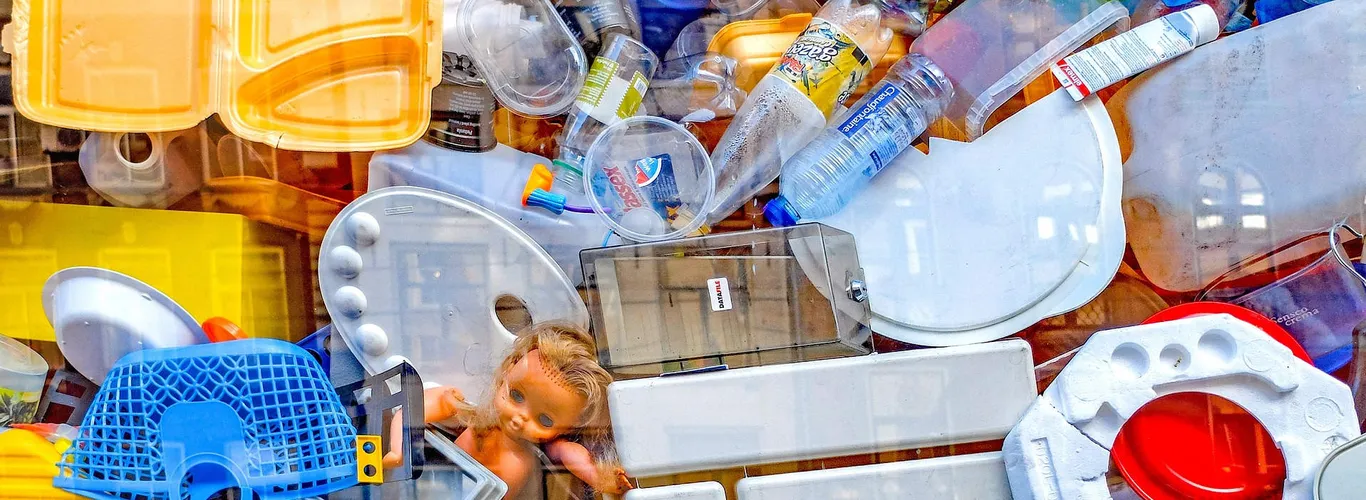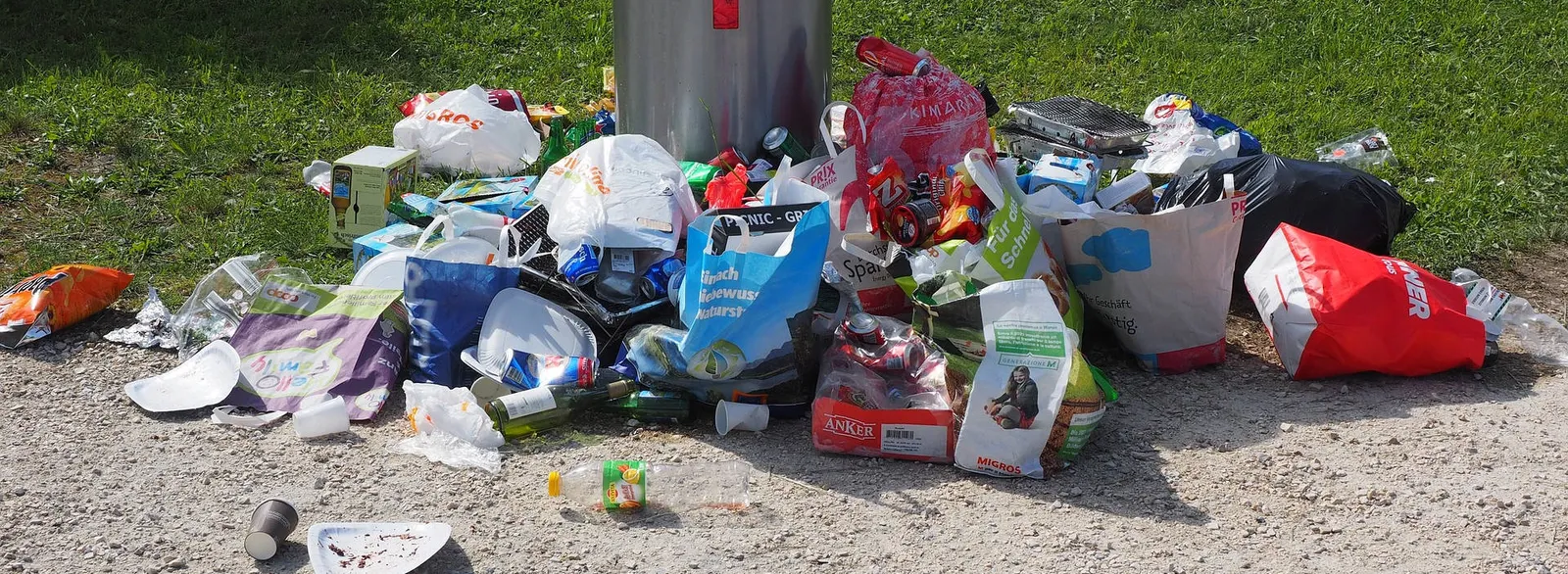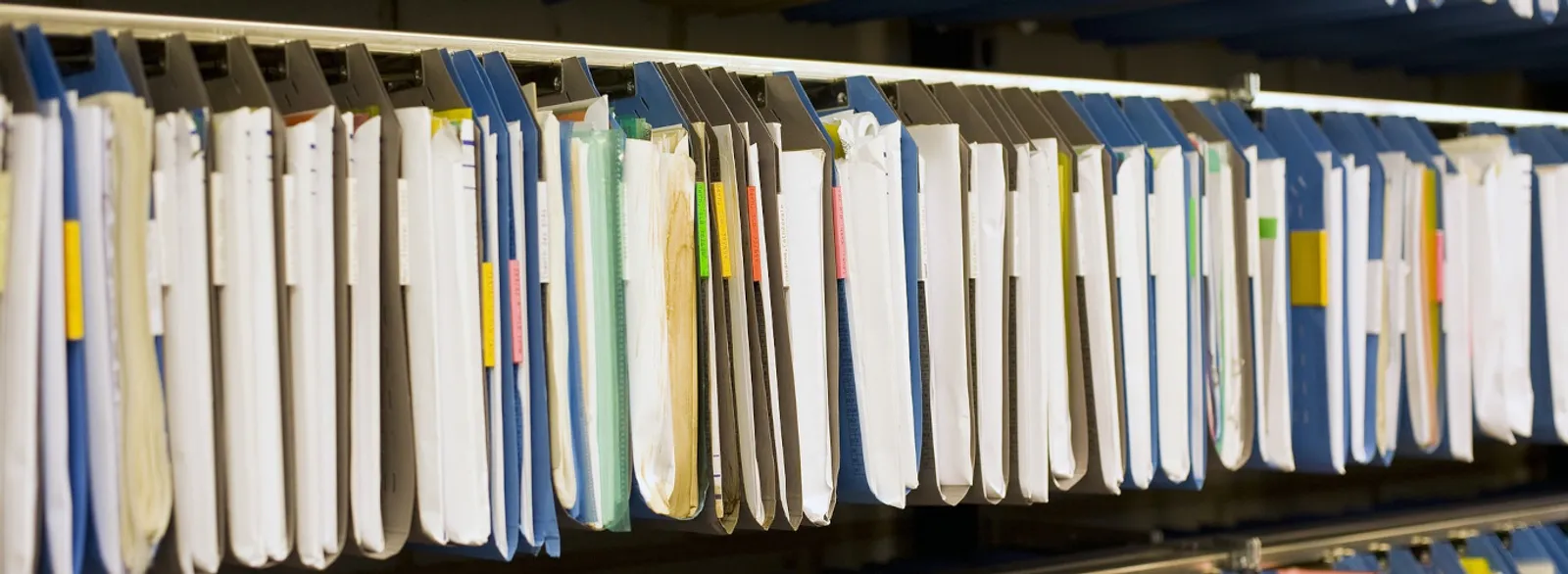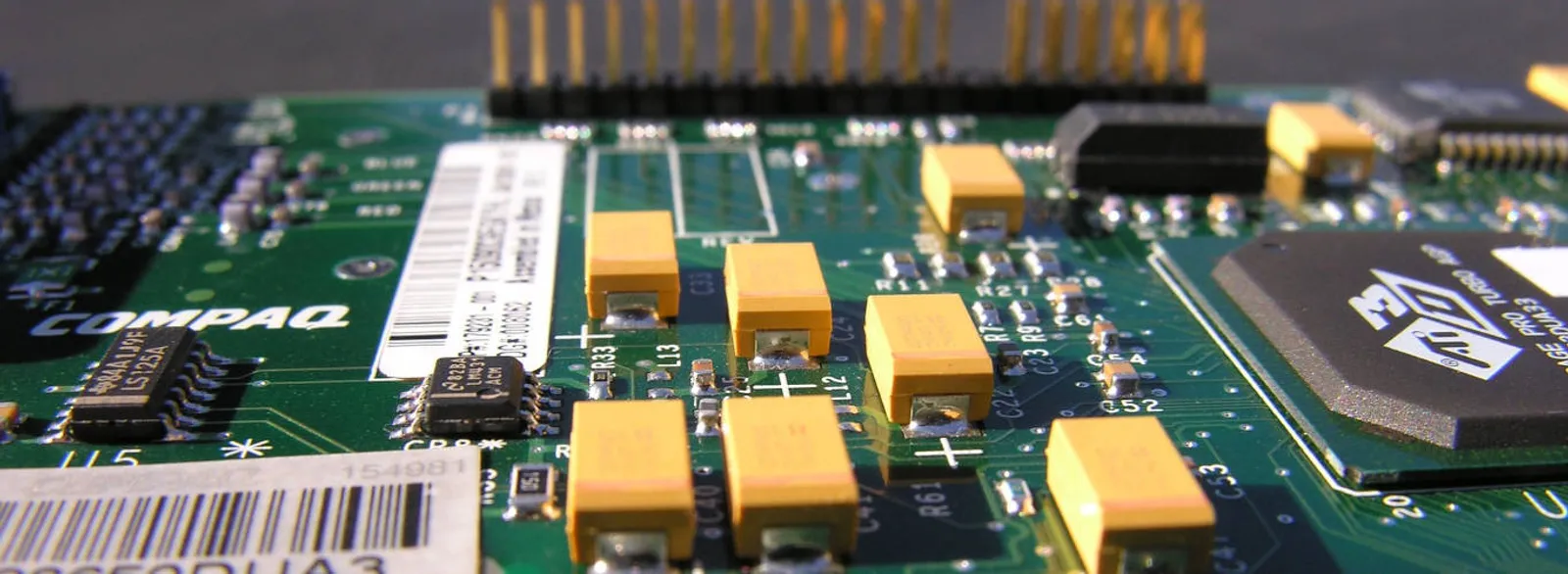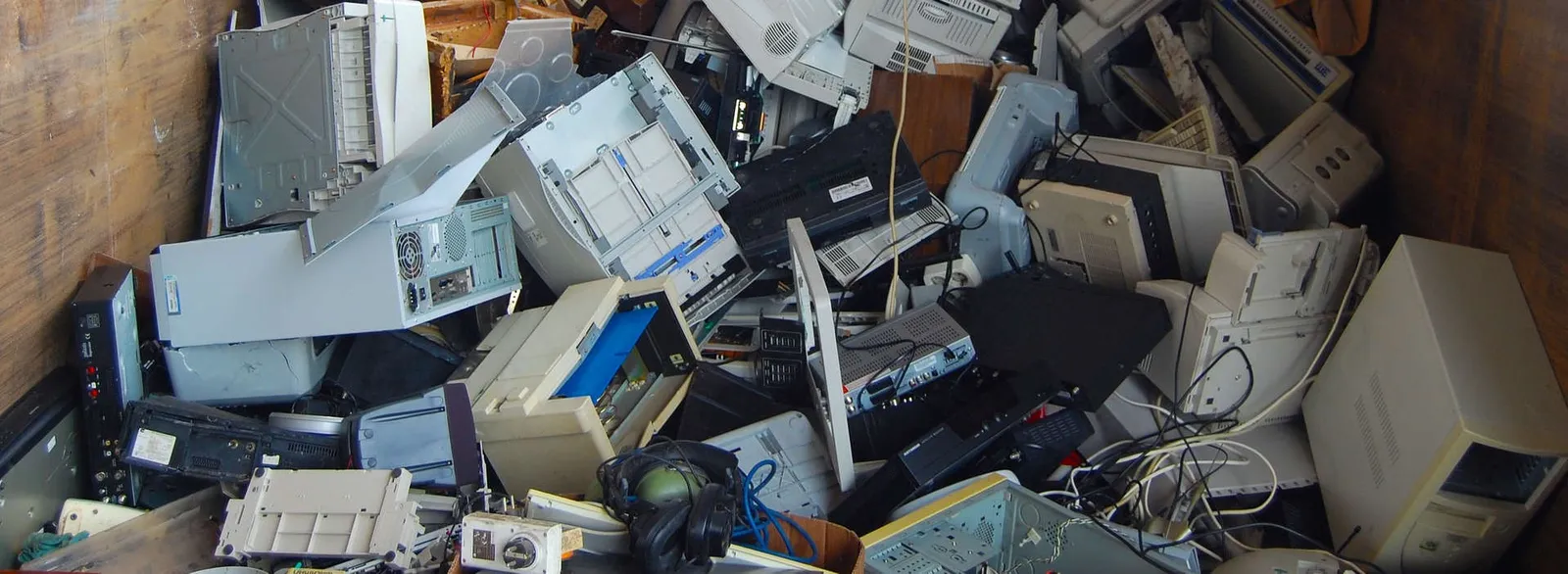If you are interested in ecology and recycling - sign up for our newsletter
Why Proper Disposal of Hazardous Waste Matters for the Environment
In a world that increasingly depends on technology and chemicals, we produce significant amounts of waste that can be harmful to the environment. Hazardous waste, including old electronic devices, expired chemical reagents, and industrial by-products, poses a serious risk to both human health and ecosystems if not properly disposed of. The appropriate handling of these materials is crucial for minimizing their impact on the environment, and this responsibility is shared by individuals, businesses, and governments alike. At Geomar Recycling, we believe in the importance of educating the public on why proper hazardous waste disposal matters and how each of us can play a role in protecting our planet.
One of the most concerning aspects of hazardous waste is its potential to contaminate soil and water sources. Improper disposal, such as dumping waste in landfills or waterways, can lead to the leaching of toxic chemicals into the environment. Heavy metals like lead, cadmium, and mercury, often found in electronic waste, can enter water supplies and pose a significant health risk to both humans and wildlife. These toxins can bioaccumulate, meaning they build up over time in the bodies of organisms, leading to severe health problems, including organ damage, neurological disorders, and reproductive issues. By ensuring that hazardous waste is properly disposed of, we can prevent these contaminants from polluting our natural resources.
Another critical reason for the proper disposal of hazardous materials is to reduce greenhouse gas emissions and other pollutants that contribute to climate change. When electronic waste, plastics, or chemical products are burned inappropriately, they release harmful gases, including carbon dioxide, methane, and toxic dioxins, into the atmosphere. These emissions not only exacerbate climate change but also affect air quality, leading to respiratory problems and other health issues for people living nearby. By choosing certified disposal and recycling services, we can ensure that these materials are processed in a way that minimizes emissions and helps to protect the air we breathe.
Moreover, proper disposal and recycling of hazardous waste help conserve valuable resources. Many electronic devices contain precious metals like gold, silver, and copper, which can be extracted and reused if the products are recycled correctly. By recovering these materials, we reduce the need for mining new resources, which is often energy-intensive and environmentally damaging. Recycling also allows manufacturers to use reclaimed materials to produce new products, contributing to a circular economy that emphasizes sustainability and waste reduction.
Companies like Geomar Recycling play a vital role in managing hazardous waste responsibly. We provide specialized services for the disposal of expired medicines, chemical reagents, and electronic components, ensuring that they are treated safely and sustainably. By offering these services, we not only help businesses comply with environmental regulations but also promote broader ecological responsibility. Proper disposal of hazardous waste is not just a legal requirement—it is an ethical obligation to protect our environment, our health, and the future of our planet.
As individuals, we also have a responsibility to dispose of hazardous products correctly. This includes taking old electronics to designated recycling centers, not throwing batteries in the household trash, and following local guidelines for disposing of expired medications. By making informed decisions and using services like those offered by Geomar, we can all contribute to a cleaner, safer environment for future generations.
Effective Methods for Transforming and Destroying Old Products
As society advances, the volume of outdated, defective, and expired products continues to grow. Whether it's expired medicines, faulty electronic components, or post-production waste, the safe and effective disposal of such items is crucial for both the environment and public health. In this section, we explore several methods of transforming and destroying these old products, focusing on their effectiveness, safety, and environmental impact.
One of the most common methods of managing old products, particularly electronic waste, is recycling. Recycling allows for the recovery of valuable materials like metals, plastics, and glass, which can then be reused in the production of new items. This not only helps reduce the need for raw materials but also cuts down on the energy consumption involved in manufacturing. For example, recycling circuit boards helps recover precious metals like gold, silver, and copper, which reduces the need for environmentally damaging mining activities. Geomar is actively engaged in this process, offering specialized recycling services for electronic waste to ensure that valuable resources are extracted and reused rather than ending up in landfills.
Incineration is another method commonly used to dispose of expired or defective products, especially those that cannot be recycled easily. Incineration involves burning the waste at very high temperatures, which reduces its volume significantly and helps neutralize hazardous substances. For example, expired medicines and certain chemical reagents can be safely incinerated to eliminate their harmful components. Modern incineration facilities are equipped with advanced filtration systems to minimize emissions and ensure compliance with environmental standards. While incineration is effective at reducing waste volume, it does have environmental implications, such as greenhouse gas emissions. Therefore, it is essential to ensure that only appropriate materials are incinerated and that the process is carried out in a controlled environment.
For chemical waste or products that are too dangerous for incineration, chemical neutralization is often employed. This method involves adding specific chemicals to hazardous substances to render them inert or non-toxic. This is particularly useful for expired chemical reagents or hazardous waste from school laboratories. By transforming these chemicals into safer forms, the risk of environmental contamination or harm to human health is significantly reduced. Geomar specializes in safely handling and neutralizing chemical waste, ensuring that potentially harmful substances are managed responsibly.
Another effective method for destroying defective or expired goods is mechanical shredding. This is especially relevant for electronic products that contain sensitive information or for expired consumer goods that must be destroyed to prevent misuse. Mechanical shredding breaks down items into smaller, unrecognizable pieces, effectively rendering them unusable. For electronic devices, this process is often combined with material recovery to extract metals and other components that can be recycled. Mechanical shredding is a secure and efficient way to ensure that defective products are destroyed while still recovering useful materials.
Finally, landfilling remains a method of last resort for the disposal of non-recyclable waste. Modern landfills are designed with layers of protective lining and drainage systems to prevent leachate—a potentially toxic liquid—from contaminating groundwater. However, landfilling is far from an ideal solution, as it takes up valuable land and poses long-term environmental risks. To minimize reliance on landfills, it is crucial to explore alternative disposal and recycling methods wherever possible. Geomar is committed to reducing the use of landfills by providing comprehensive recycling and disposal services that prioritize sustainable practices.
How You Can Responsibly Dispose of Defective or Expired Equipment
One of the most important reasons to dispose of defective or expired electronic equipment responsibly is due to the presence of hazardous materials. Electronics often contain harmful substances, such as lead, mercury, and cadmium, which can leak into the environment if improperly disposed of. When these substances enter soil or water systems, they can pose severe health risks to both people and animals. For this reason, simply throwing these devices in the trash is never a good option. Instead, responsible disposal involves ensuring these toxic components are handled in a way that minimizes environmental damage and promotes the safe recovery of valuable materials.
The first step to responsibly dispose of electronic waste is to check for recycling programs in your area. Many communities have e-waste collection points where you can drop off old devices. Companies like Geomar Recycling specialize in the collection and processing of such waste, ensuring that hazardous materials are properly treated and that valuable components are recovered and reused. Geomar's services include recycling electronic devices, disposing of post-production and industrial waste, and even safely handling chemical laboratory waste from schools. By utilizing such services, you can be confident that your old devices are not contributing to environmental harm.
Another key consideration is the possibility of refurbishing or donating old equipment. Not all expired or defective products are beyond repair. In some cases, they can be refurbished and brought back to life, which helps reduce the demand for new products and cuts down on the waste generated by production processes. Geomar supports local communities, including those who are digitally excluded, by helping provide refurbished equipment such as computers to those who need them. By choosing to donate your old but functional devices, you can help bridge the digital divide and contribute to charitable causes.
For items that are beyond repair, recycling is the best option. Geomar Recycling employs advanced recycling techniques that break down products into their individual components, allowing the safe extraction of valuable materials like gold, silver, copper, and other metals. These materials can then be used in the production of new electronics, which reduces the need for mining raw resources and helps conserve natural habitats. Additionally, Geomar's recycling processes ensure that harmful components are disposed of in compliance with environmental regulations, thus minimizing any potential negative impact on the environment.
To summarize, responsible disposal of defective or expired equipment is crucial for safeguarding our environment and protecting human health. By choosing to recycle your electronics through programs like those offered by Geomar Recycling, you can play an important part in minimizing electronic waste and promoting sustainability. Whether it involves refurbishing, donating, or recycling, there are numerous ways to make sure your old equipment is handled in a responsible manner—helping both the planet and those in need. Let’s all take steps toward more sustainable living by making informed choices when it comes to disposing of electronic devices.
